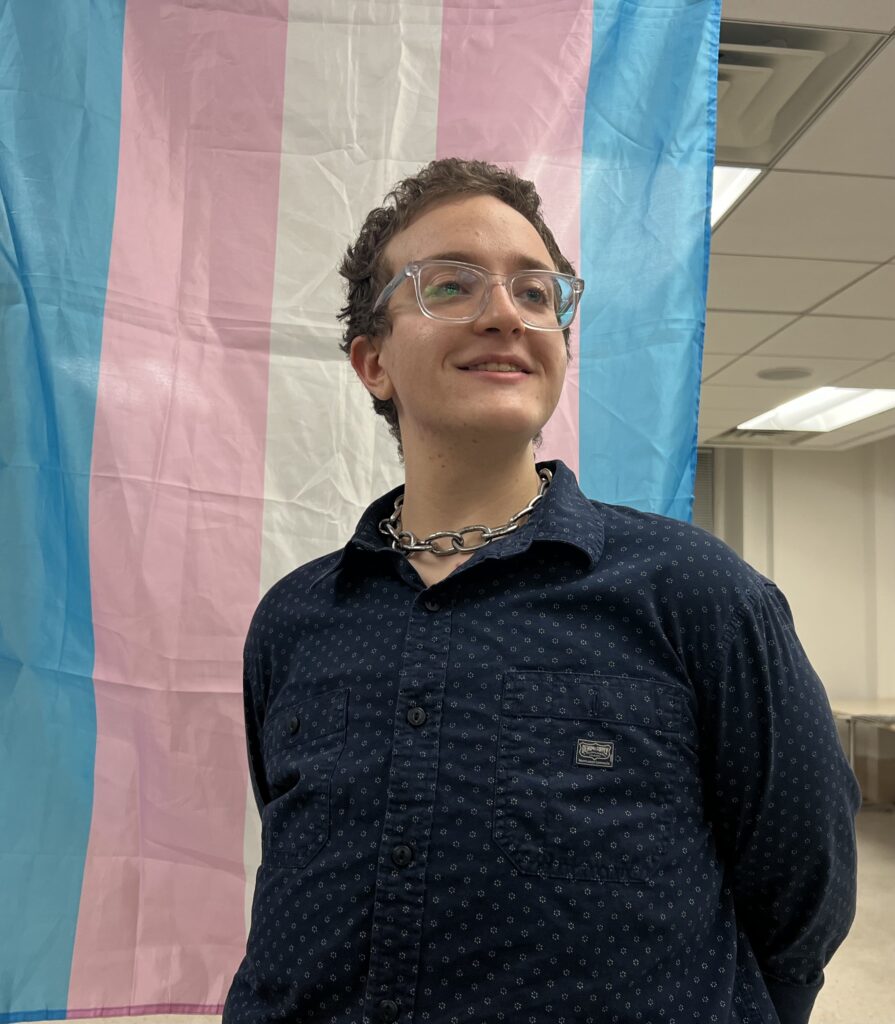By Celia Bernhardt | cbernhardt@queensledger.com
James Austin, 19-year-old Forest Hills resident, has found years of purpose and growth through LGBT programs at Queens Community House.
In middle school, Austin found out about QCH’s Generation Q drop-in center for LGBT youth. He felt immediately at home.
“Generation Q used to be in this back building of Queens Community House,” he remembered. “Immediately after going…the first time, I started going basically every single day. And that’s truly not an exaggeration, I went every single day that I could from open to close.”
“It was the first space where you could really let your guard down,” Austin explained. “And it was the first place I met trans adults and other queer people my age, and the first place that really took me in and met me where I was.”
Helping lead the GSA (Gay-Straight Alliance) in high school, Austin often coordinated programming and collaboration between the club and Generation Q. “Telling everyone who could possibly benefit from Generation Q about it was a mission of mine,” he said.
When it came time to graduate high school, Austin knew he didn’t want to go to college, but wasn’t sure what his next step was—until he looked at QCH’s job board and saw an open Program Assistant position at the organization’s Center for Gay Seniors in Jackson Heights. It was a no-brainer. He applied, was accepted, and started work just months after graduating.
Austin felt some initial anxiety about working with an elderly population as a transgender man, but says he was met with “absolute acceptance” by the seniors despite the generational difference. Today, he loves his work with a passion.
“I truly can’t even put into words what I have learned from the seniors…spending time with your elders and getting to hear about their lives and their experiences really, really enlightens you,” Austin said. “The seniors are absolutely young at heart. I really do value all the time that I get to spend and sit down and talk with people and hear about their lives—especially when they were younger, going to the gay bars and meeting their lifelong partners.”
Seeing LGBT elders enjoy their lives had a huge impact on Austin, who explained that it can be difficult to imagine growing old as a queer person. “Being able to see the fact that not only do you get to grow old, but you can do it happily,” he said, was crucial. “It doesn’t all end in tragedy.”
“[The seniors] will absolutely teach you to value all the people in your life, especially your friends and your chosen family,” Austin continued. “A lot of the seniors don’t have familial support systems—their support systems are their friends that they’ve known for years and years. A lot of people rely on their queer community to support them, whether that’s driving them places or helping them pick up medication. So really valuing the friends in your life—because maybe one day you’ll be old together, and you’ll need each other just as much as you do now.”

Editor’s note: a different version of this article appeared in print on 12/07/2023. A pseudonym has been used for safety purposes.


